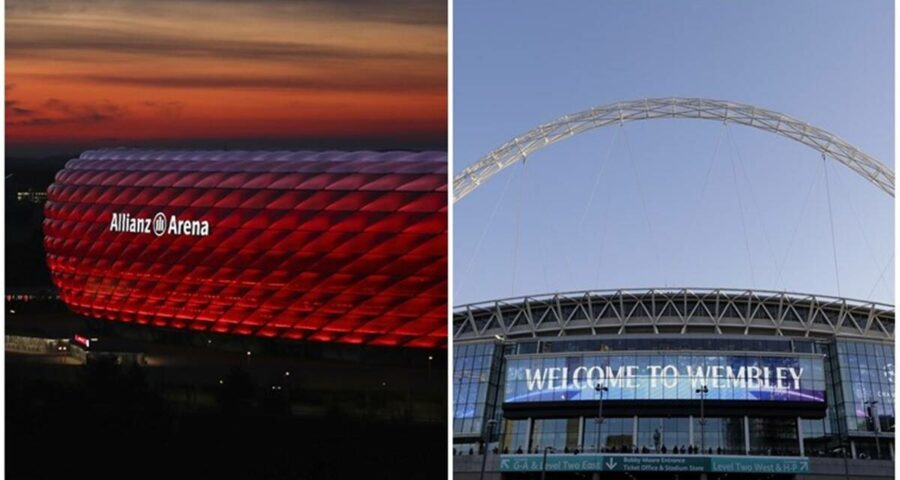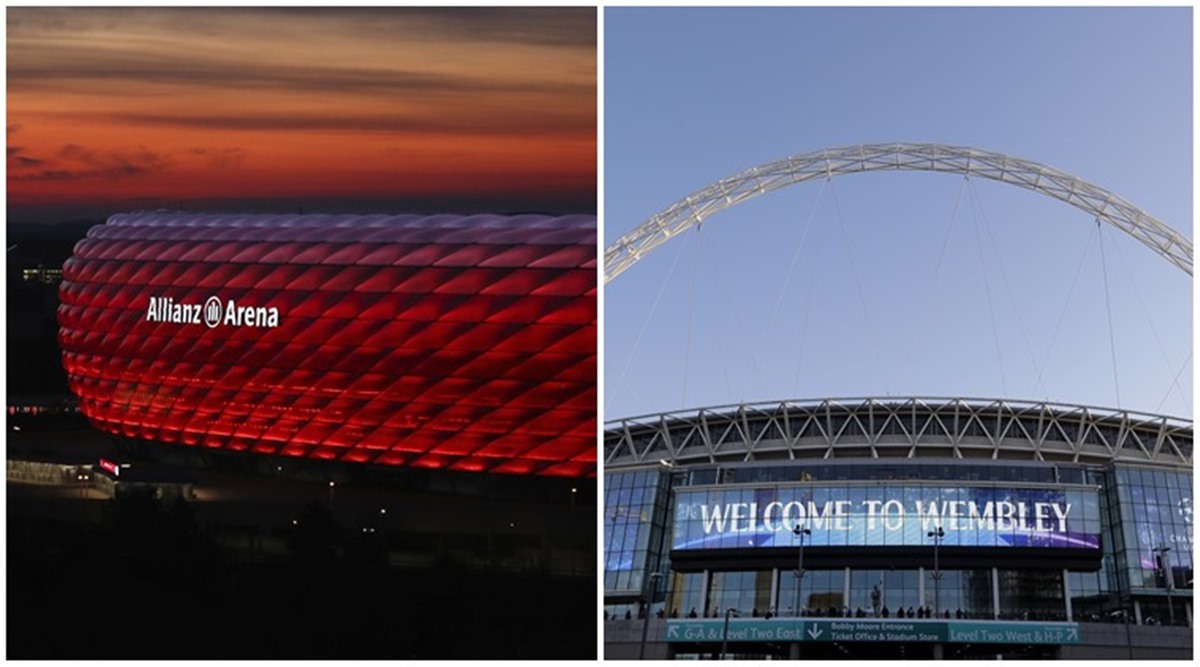In theory, all nine teams have an advantage by playing at least some games at home, but that will change if they progress.
Fifty-five years after playing six straight matches at Wembley Stadium to win the 1966 World Cup, England could play another six at the famous venue at this year’s European Championship.
Nine of the 24 teams at the postponed tournament will host matches, but no city has more games on the schedule than London.
England’s three Group D matches will be played at Wembley, and they could stay in town for the round of 16 if they finish at the top. From there, the team could head to Rome for the quarterfinals and then possibly back to Wembley for the semifinals and final.
By then, authorities will be hoping to fill more than a quarter of the 90,000 seats if the coronavirus situation improves.
Five other teams will also play all their group games at home, including three-time champions Germany and Spain in Munich and Seville, respectively. Also, Italy will play its group matches in Rome, the Netherlands will stay in Amsterdam and Denmark will host its matches in Copenhagen.
Those games in the Danish capital will give the 1992 European champions a boost for Group B matches against World Cup semifinalist Belgium, Finland and Russia.
Hungary (Budapest), Russia (St. Petersburg) and Scotland (Glasgow) have two group games each at home.
In theory, all nine teams have an advantage by playing at least some games at home, but that will change if they progress.
The Italians will open the tournament at Stadio Olimpico against Turkey on June 11, then face Switzerland and Wales. But winning the group or even finishing second sends the Azzurri away from home.
Similarly, the rest of the hosts would all hit the road for the round of 16 — with the possible exception of England.
The toughest group looks to be Group F, which contains France, Germany, Portugal and Hungary. Both Germany and Hungary will serve as host cities, and those home matches against World Cup champion France and defending European champion Portugal could prove pivotal.
There’s no question that host nations get some sort of a boost at major tournaments, but there has never been one so spread out like this year’s event. Besides, being host is no guarantee of ultimate success. The last team to host the European Championship and win it was France in 1984, back when Michel Platini was ruling the midfield and scoring goal after goal.
Others came close, including France again reaching the final five years ago and Portugal getting that far in 2004. West Germany, Sweden, England and the Netherlands all reached the semifinals as host or co-host.
France, coincidentally, was also the last host of the World Cup to win the title at home, in 1998.
Source: Read Full Article


